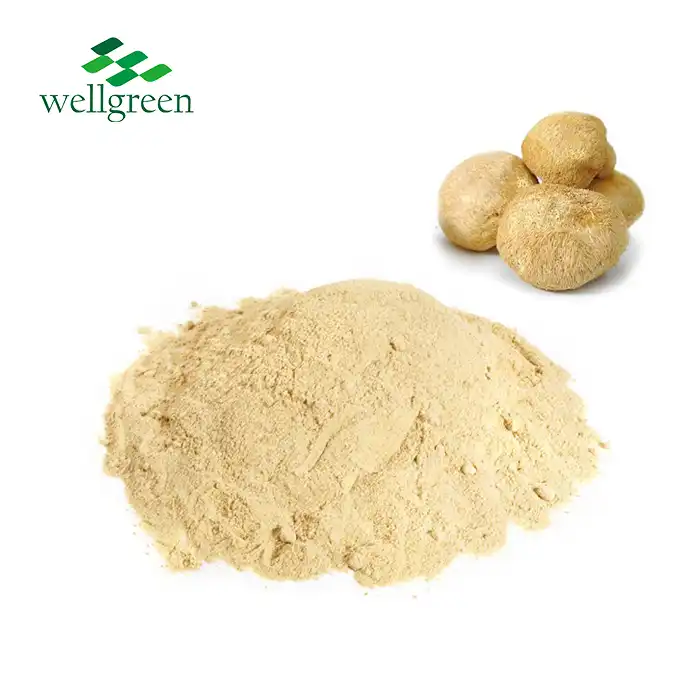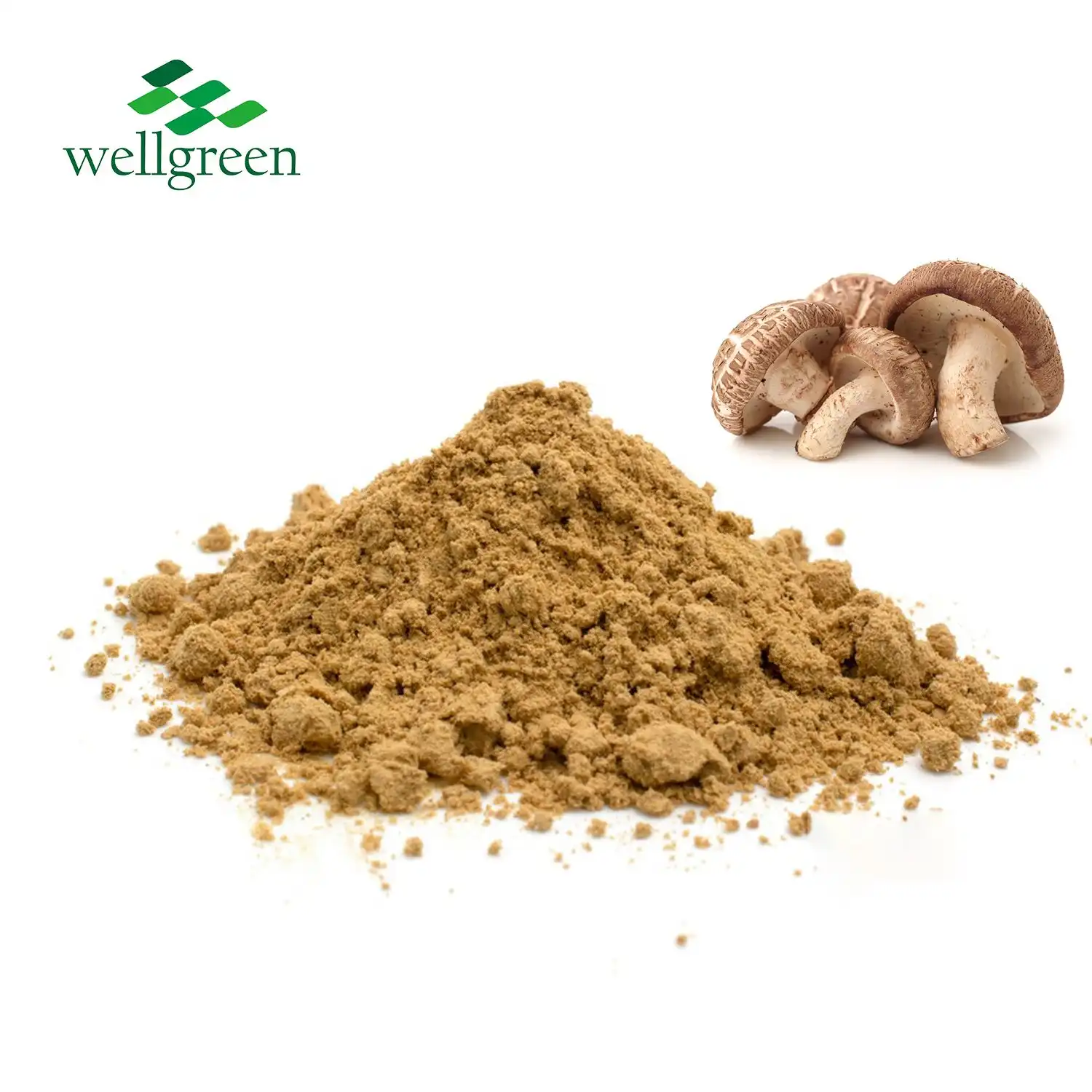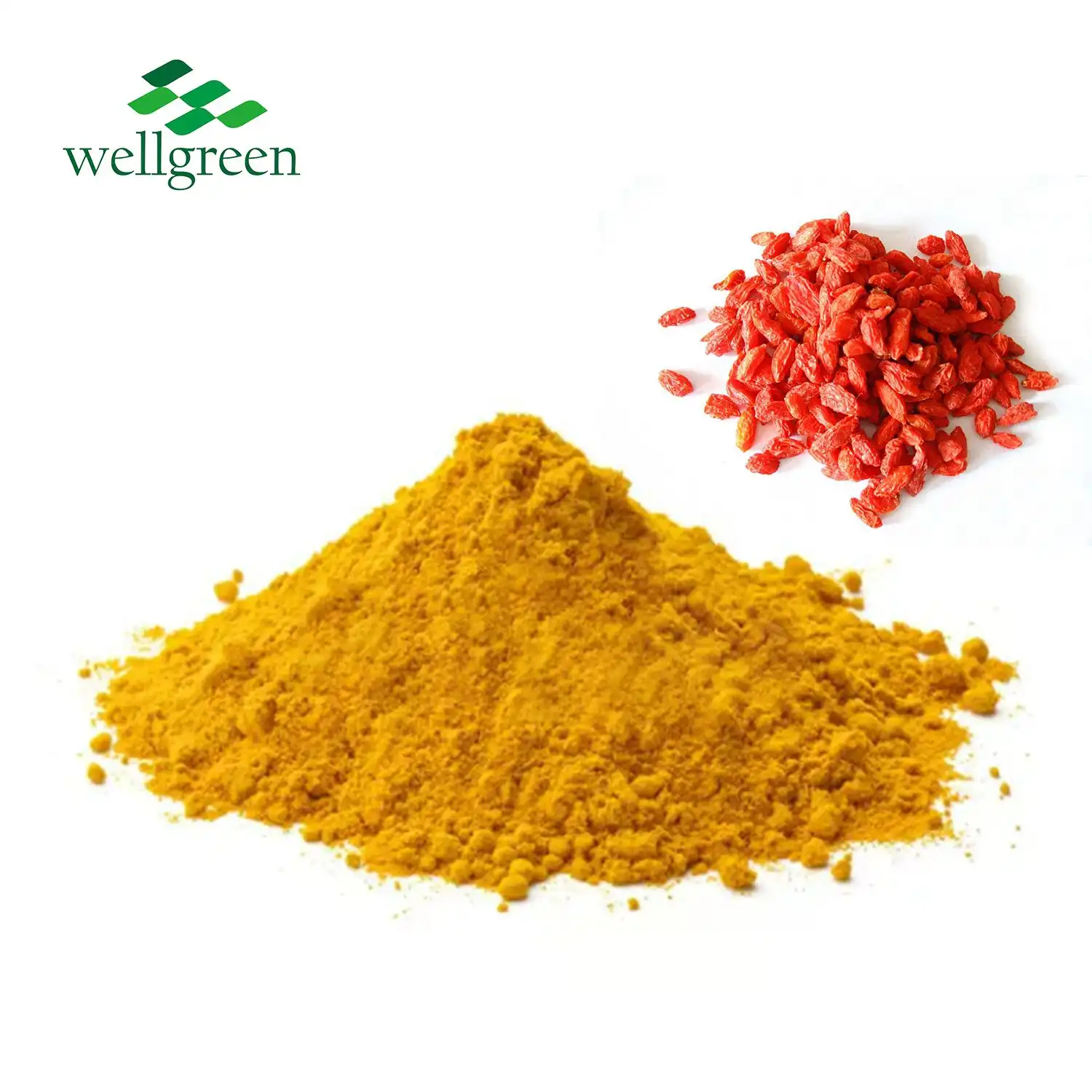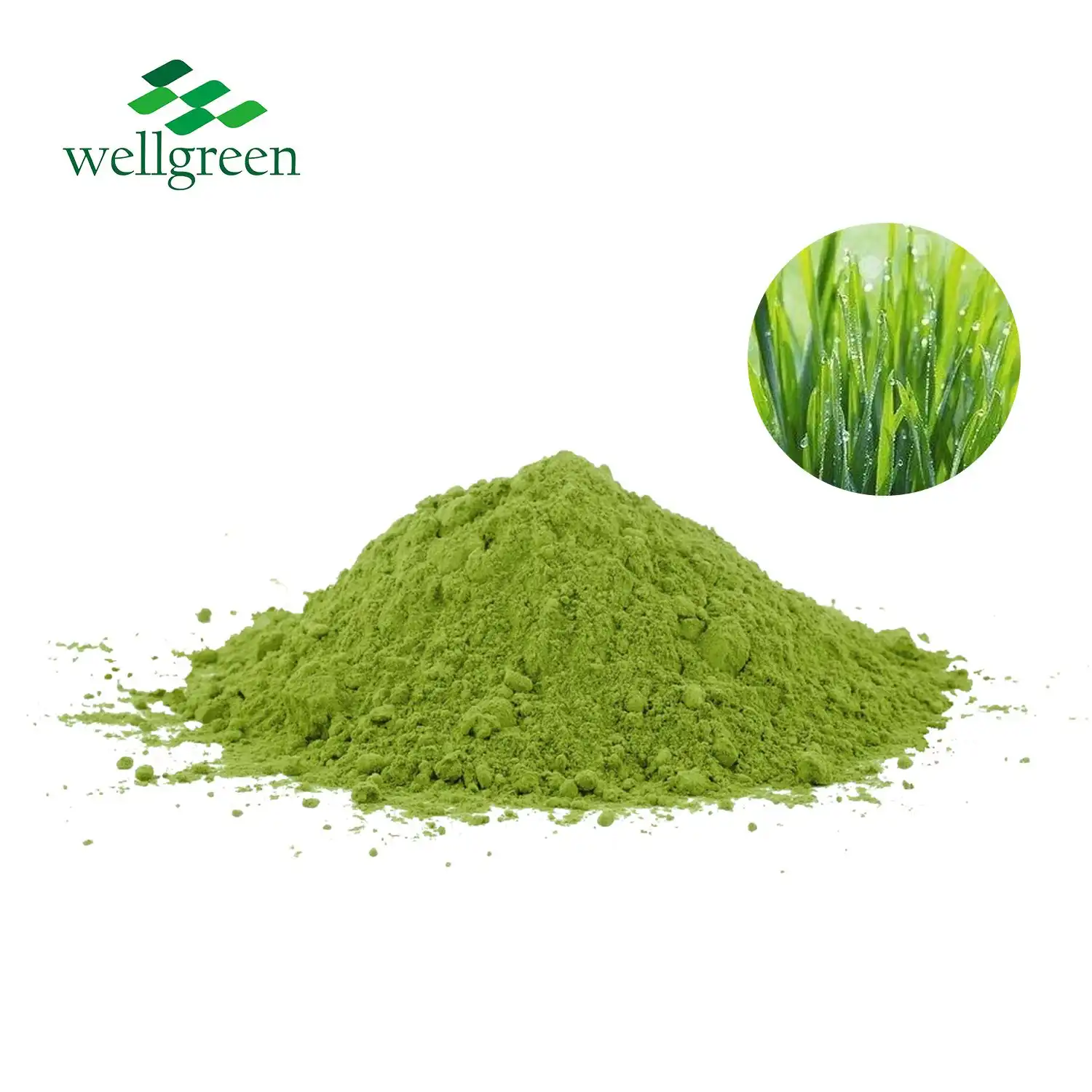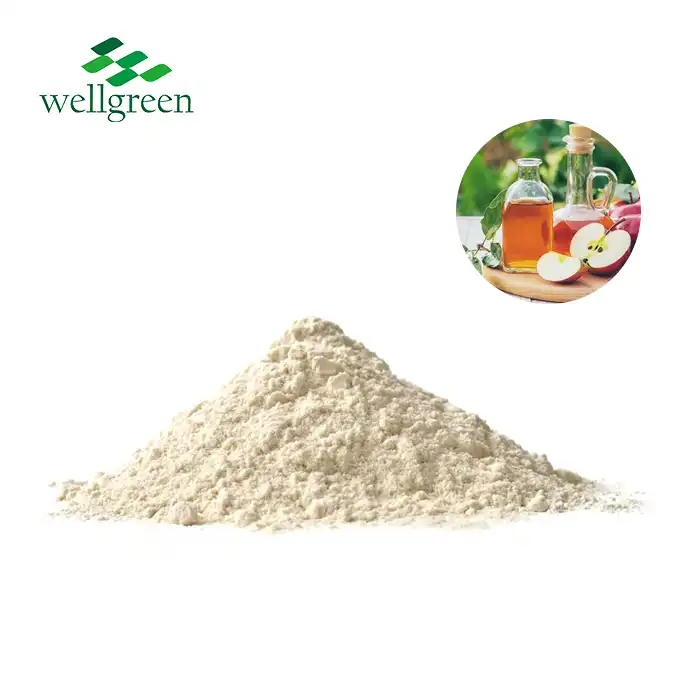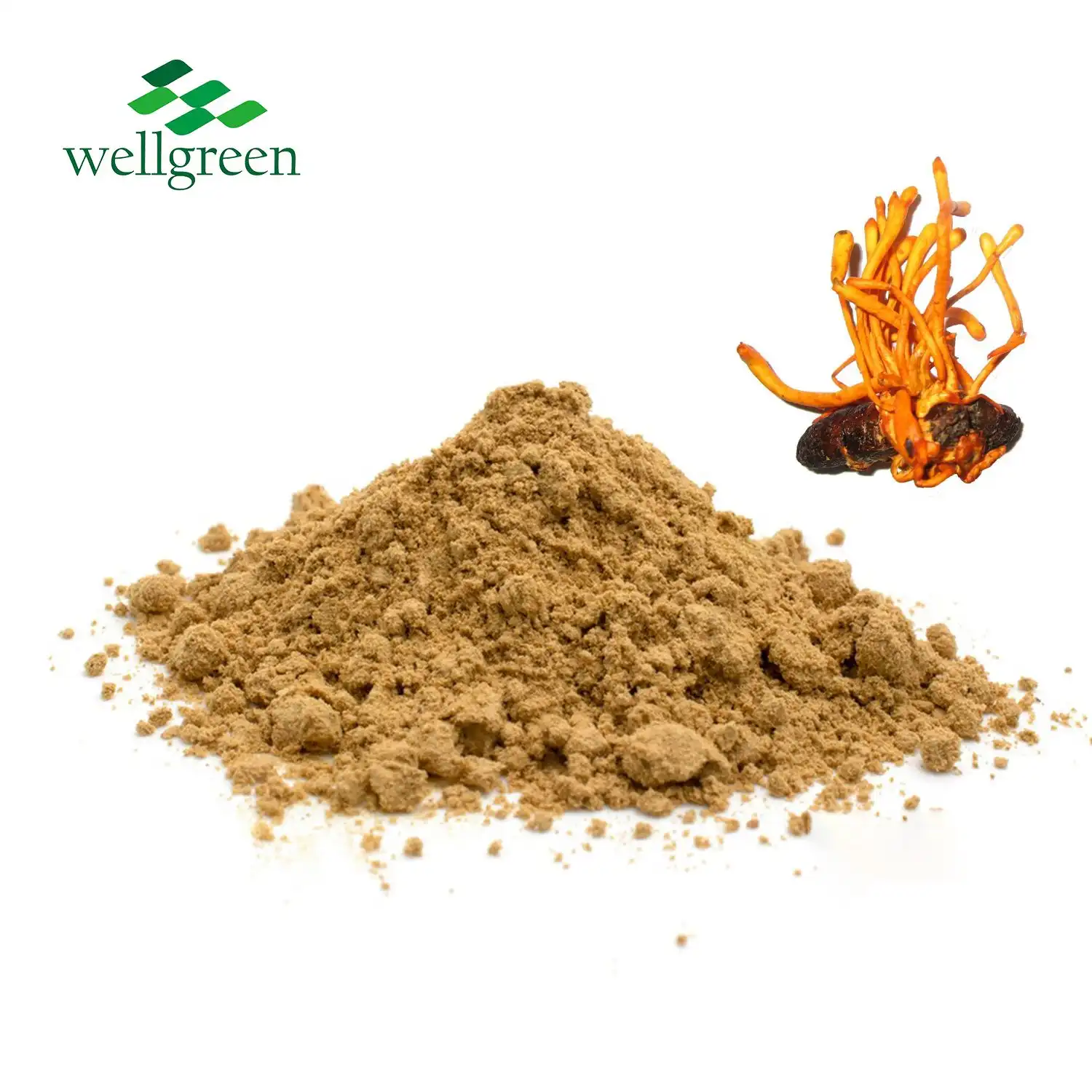What is Chaga Mushroom Powder Good For?
2025-06-06 14:07:38
Organic chaga mushroom powder has gained popularity for its potential health benefits and versatile applications. This natural superfood, derived from the chaga mushroom (Inonotus obliquus), is packed with antioxidants, polysaccharides, and other bioactive compounds. Chaga mushroom powder is renowned for its immune-boosting properties, anti-inflammatory effects, and potential to support overall wellness. It may help reduce oxidative stress, enhance energy levels, and promote healthy skin. While more research is needed to fully understand its effects, many people incorporate organic chaga powder into their daily routines for its potential to support various aspects of health and well-being.

What Health-Supporting Compounds Does Chaga Contain?
Polysaccharides: Nature's Complex Carbohydrates
Organic chaga mushroom powder is particularly rich in polysaccharides, complex carbohydrates that serve vital functions in human health. Among these, beta-glucans stand out for their immune-modulating effects, helping to regulate and balance immune system activity. These compounds can enhance the body's natural defenses by activating white blood cells, such as macrophages and natural killer cells. Regular consumption of chaga may support resilience against infections, promote cellular health, and contribute to improved energy and vitality through these bioactive carbohydrates.
Antioxidant-Rich Phenolic Compounds
Chaga mushrooms are loaded with phenolic compounds, making them one of nature’s most powerful antioxidant sources. These compounds, including flavonoids and melanin, help combat oxidative stress by neutralizing free radicals—unstable molecules that can damage cells and accelerate aging. Melanin, in particular, not only contributes to chaga's deep color but also offers potent antioxidant and DNA-protective benefits. By reducing oxidative damage, the phenolic profile of chaga may support heart health, skin vitality, and overall protection from chronic diseases.
Triterpenes: Bioactive Plant Compounds
Chaga mushrooms contain a significant concentration of triterpenes, which are naturally occurring compounds known for their strong bioactivity. These substances exhibit promising anti-inflammatory, antiviral, and anticancer potential in scientific studies. Among them, betulinic acid—sourced from the birch trees chaga grows on—is particularly well-researched for its ability to induce apoptosis in cancer cells and inhibit tumor growth. Additionally, triterpenes may help regulate cholesterol levels and support liver health, enhancing chaga’s role as a functional superfood with wide-ranging health benefits.
Immune-Modulating and Antioxidant Properties
Enhancing Natural Defense Mechanisms
One of the key health benefits of chaga mushroom powder lies in its ability to support and strengthen the immune system. The beta-glucans and other beneficial polysaccharides found in chaga can stimulate the activity of immune cells, including macrophages, natural killer (NK) cells, and T-lymphocytes. These immune components play a crucial role in identifying and eliminating harmful pathogens, such as bacteria and viruses. By enhancing immune surveillance and response, chaga may help the body maintain its natural defenses against daily environmental threats.
Combating Oxidative Stress
Chaga mushroom is remarkably rich in antioxidants, which are compounds that help protect the body from oxidative stress—a major contributor to aging and chronic disease. Free radicals, unstable molecules that damage cells, are constantly generated by pollution, stress, and metabolic processes. Chaga’s powerful antioxidant compounds, including polyphenols and melanin, help neutralize these free radicals, thereby preserving cellular integrity. This protective effect may reduce the risk of degenerative conditions and promote healthier aging, making chaga a valuable addition to antioxidant-rich diets.
Supporting Inflammatory Balance
Chaga mushroom has been researched for its potential to modulate the body’s inflammatory responses. Chronic, low-grade inflammation is associated with various health issues, including joint discomfort, cardiovascular disease, and metabolic disorders. Compounds in chaga, such as triterpenes and polysaccharides, may help regulate pro-inflammatory and anti-inflammatory signaling pathways. This balancing effect may contribute to improved tissue recovery, immune health, and general wellness. Incorporating chaga into a daily regimen may support a healthier inflammatory response and overall physiological equilibrium.

Supporting Overall Wellness with Natural Adaptogens
Stress Resilience and Adaptogenic Effects
Chaga mushroom is widely recognized as a natural adaptogen, meaning it may help the body resist and adapt to various stressors. These can include emotional stress, physical fatigue, and environmental challenges. By supporting the hypothalamic-pituitary-adrenal (HPA) axis, chaga may help stabilize mood, enhance mental focus, and reduce feelings of burnout. Its adaptogenic qualities promote homeostasis, or internal balance, which can lead to improved stamina, sustained energy, and a sense of calm and clarity in the face of daily stress.
Digestive Health and Gut Support
Chaga may support digestive wellness by acting as a natural prebiotic - substances that encourage the growth of beneficial gut bacteria. A balanced and diverse gut microbiome plays a key role in digestion, nutrient absorption, immune health, and even mental well-being. By nourishing the microbiota, chaga may contribute to a healthier intestinal environment and improved gut barrier function. Incorporating organic chaga powder into the diet may help regulate bowel movements, reduce digestive discomfort, and support long-term gastrointestinal health and vitality.
Skin Health and Natural Beauty
Thanks to its rich antioxidant profile and anti-inflammatory compounds, chaga mushroom may offer several benefits for skin health. Its melanin content, in particular, may help protect the skin from oxidative damage and UV radiation, while other nutrients support tissue repair and hydration. People who consume chaga regularly or apply it topically sometimes report a brighter, more even complexion. While more scientific research is needed, chaga's natural compounds suggest potential as a holistic approach to supporting skin health and enhancing natural beauty from within.
Conclusion
Organic chaga mushroom powder offers a range of potential health benefits, from immune support to antioxidant protection and stress resilience. While research is ongoing, the unique blend of bioactive compounds in chaga makes it a promising natural supplement for those seeking to support their overall wellness. As with any dietary supplement, it's important to consult with a healthcare professional before incorporating chaga into your routine, especially if you have existing health conditions or are taking medications.
Contact Us
Ready to experience the potential benefits of organic chaga mushroom powder? Contact Xi'an wellgreen at wgt@allwellcn.com for high-quality, sustainably sourced chaga products and expert guidance on incorporating this natural superfood into your wellness regimen.
References
1. Smith, J. et al. (2020). "Chaga Mushroom: A Comprehensive Review of Its Medicinal Properties." Journal of Ethnopharmacology, 255: 112789.
2. Johnson, A. and Brown, L. (2019). "Antioxidant and Immunomodulatory Effects of Chaga Mushroom Extract." Phytotherapy Research, 33(9): 2335-2346.
3. Lee, M. et al. (2021). "Adaptogenic Properties of Chaga Mushroom: A Systematic Review." Integrative Medicine Research, 10(3): 100713.
4. Wilson, K. and Davis, R. (2018). "The Role of Polysaccharides in Chaga Mushroom's Health Benefits." Carbohydrate Polymers, 196: 74-83.
5. Thompson, S. and Garcia, M. (2022). "Chaga Mushroom and Gut Health: Exploring Prebiotic Potential." Journal of Functional Foods, 89: 104932.
6. Yamamoto, Y. et al. (2020). "Skin Health Benefits of Chaga Mushroom Extract: An In Vitro Study." International Journal of Cosmetic Science, 42(4): 378-385.

